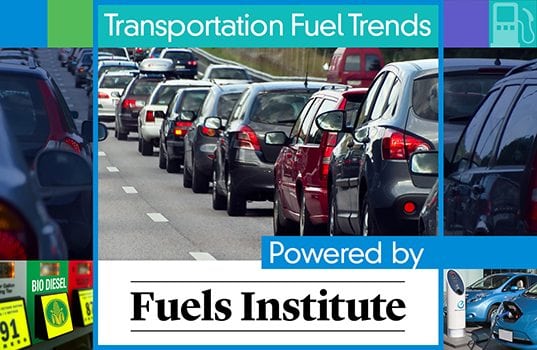However, not all markets are growing at the same rate and the deployment of charging stations to support EV drivers will be unique to each market. A new report released by the Fuels Institute, “Electric Vehicle Adoption: Focus on Charging,” presents an objective analysis of the factors contributing to EV market expansion and focuses on determining the optimum deployment of charging infrastructure based upon market conditions.
Roughly one-third of U.S. drivers indicate they may buy an EV as their next purchase and dozens of new models with at least a 200-mile charging range are expected to come on the market in the next couple of years. However, there remain barriers to EV adoption, including vehicle purchase price, insufficient consumer awareness, and lack of adequate charging infrastructure. This new report carefully evaluates each of these elements and provides tools for stakeholders to better understand the dynamics of this growing market.
“There are a ton of electric vehicle reports out there,” said John Eichberger, director of the Fuels Institute. “This report was commissioned to take a deeper dive into the main barriers to EV adoption to help readers better anticipate 1) the potential expansion of EVs within their markets and 2) the associated required charging infrastructure to support these drivers. In particular, the Fuels Institute wanted to better understand where and how consumers may charge in the future and how infrastructure needs could vary between different markets.”
The report finds that the transition to mass adoption of EVs will likely require a mix of EV charging solutions with a particular focus on utilization and convenience. Where people live, work and how they travel will be critical to influencing the pace of EV adoption and the development of charging infrastructure that will satisfy the needs of a given market. The report looks at the total cost of ownership of an EV and identifies those factors that are market dependent; it evaluates the role of utilities and how they are engaging in infrastructure deployment; and it looks specifically at key metropolitan market to understand the market conditions that could lead to robust EV market expansion in the future.
Unique Charger Demand Analysis Tool and Market Case Studies
The report is unique in that it includes a dynamic online charger demand analysis tool designed to determine where and what type of chargers might be useful based upon various inputs such as where EV drivers will likely live, work and visit within different metropolitan regions. The model can also be updated to determine how charger demand might change as a result of different assumptions regarding EV ownership and where chargers might be deployed within residences, workplaces or at public locations, referred to as opportunity charging. The model was utilized to analyze charger demand in ten representative cities (Atlanta, GA; Austin, TX; Chicago, IL; Columbus, OH; Denver, CO; Des Moines, IA; Los Angeles, CA; Orlando, FL; Philadelphia, PA; and Portland, OR) and corresponding interactive maps showing charger locations and types are available online – ecosystems.azurewebsites.net/fuelsinstitute/
Additionally, the report takes a deep dive into the current EV market conditions in five metropolitan areas (Atlanta, GA; Austin, TX; Des Moines, IA; Los Angeles, CA; and Philadelphia, PA) to show real-time examples of how people drive EVs, including where they charge, when they charge, and for how long they tend to charge. These case studies serve as an opportunity to see how varying conditions in different geographical locations affect the deployment of and demand for EV charging infrastructure.
“A one-size-fits all approach to EV charger deployment will not be successful,” Eichberger said. “It is important to recognize the differences between markets and draw comparisons to one’s own market in order to develop a successful charging station strategy. The online charger demand analysis tool and the in-depth case studies provide insight into market dynamics not available in any other report. These tools can help guide stakeholders to develop EV charging markets efficiently and effectively.”
“Electric Vehicle Adoption: Focus on Charging,” can be downloaded free of charge at www.fuelsinstitute.org/research









